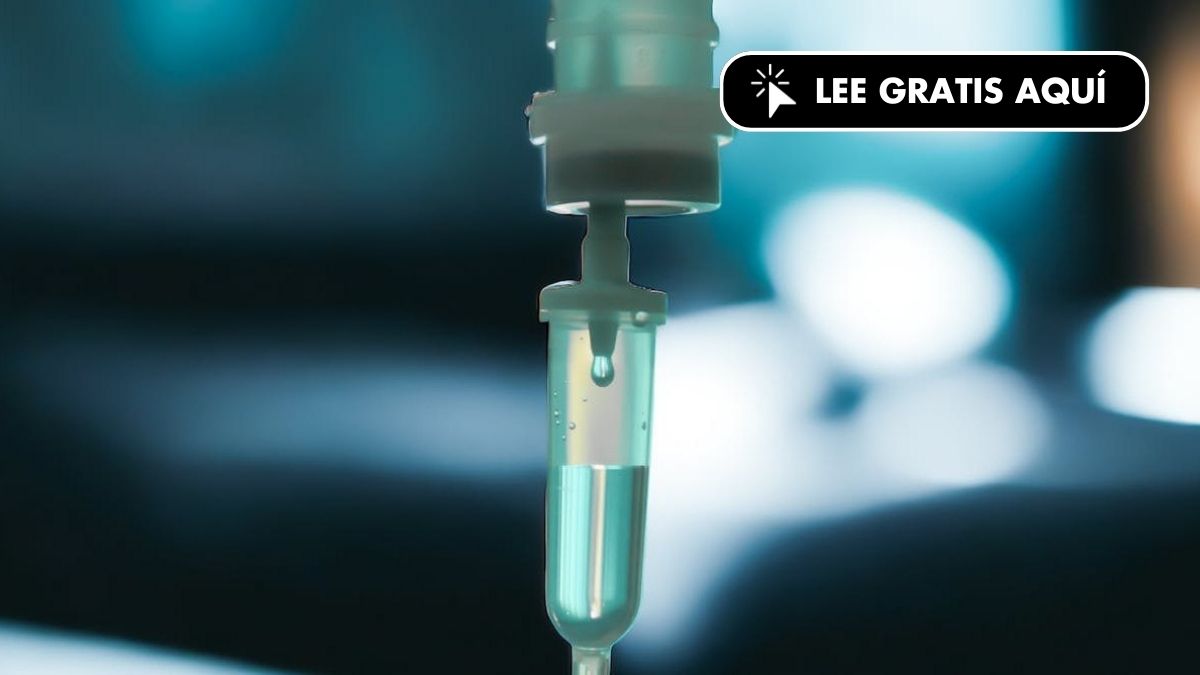The ability of cold to mitigate the side effects of chemotherapy

Although it can be very simply defined as the uncontrolled growth of abnormal cells, The term “cancer” actually covers more than 100 different types of pathologies.which can affect multiple parts of the body and have varying prognoses.
There is also a wide choice of treatment methods – surgery, radiation therapy, immunotherapy, targeted therapy, hormonal therapy…–, But what patients are perhaps most concerned about due to possible side effects is chemotherapy..
Fatigue, nausea, vomiting, loss of appetite, hair loss, anemia, infections, digestive problems, inflammation of the lining of the digestive tract (musocitis), nerve damage (neuropathy) and problems concentrating are some of these unwanted effects.
There are various approaches to prevent and relieve these symptoms. and in recent decades the use of ice has been gaining popularity. So-called cryotherapy can be used through a variety of systems, such as cold caps, gloves and socks, and direct application of ice to the mouth.
Cold caps to prevent hair loss
One of the most common and visible side effects of chemotherapy is hair loss. It can begin several weeks after starting treatment, affecting the scalp, eyebrows, eyelashes, and even other body hair. This drop occurs because the drugs attack more than just tumor cells.but they act globally and can damage the hair follicle.
Although alopecia is usually reversible, it can undermine self-esteem, causing anxiety and depression. and impair the social interactions of affected people. They often feel lonely, and the sight of themselves without hair constantly reminds them that they are sick.
A technique to reduce this effect is as follows. scalp cooling system or a cold cap, the purpose of which is to reduce the amount of drug reaching the base of each hair by applying local cold.. Low temperatures constrict the blood vessels in the scalp, thereby reducing the flow and absorption of chemicals in the area. Oncology guidelines already include cold cap among their recommendations.
Although the effectiveness of these “helmets” is not the same for all people, some studies show that approximately 66% of patients who used them, retained more than 50% of their hair, and 39.3% retained it entirely. of their hair compared to 0% of patients who used nothing.
The cooling cap should be applied approximately 45 minutes before the start of the infusion (drip). stay throughout treatment and leave it in your head for about 90 minutes after finishing.
Tolerance and level of compliance scalp cooling system are high and their side effects are mild or moderate. These include headache, feeling cold and scalp discomfort.
Gloves and socks against neuropathy
Another common adverse effect is something called chemotherapy-induced peripheral neuropathy (CIPN). This is mainly due to the introduction of taxanes, a group of medications that damage peripheral nerves and often cause a tingling sensation.spontaneous pain or discomfort when faced with common stimuli such as touch. This effect on the nerves also results in weakness in the muscles of the legs and arms and changes in sensation.
Symptoms may begin throughout treatment or after it ends. Its duration also varies: 68% of patients suffer from them for one month, 60% for three months and 30% for six months or more.. CIPN may even limit daily activities.
In these cases, cryotherapy is carried out wearing gloves and socks, which reduce the temperature of the extremities during treatment. The vasoconstriction created in this way prevents significant amounts of the drug from entering these areas and damaging the peripheral nerves.
Various studies, including a systematic review published this year, show its effectiveness and improvement in patients’ quality of life.
Ice in the mouth to combat mucositis
Finally, chemotherapy-induced mucositis is an inflammation of the lining of the mouth, esophagus, and digestive tract. The patient experiences pain and redness in the mouth and throat, ulcers, and difficulty eating and drinking.
One strategy to prevent this disease is to slowly dilute the ice in your mouth during treatment. Some studies suggest that this action limits the drug’s exposure to the oral mucosa, reducing damage and ulceration.
In short, the use of cold seems to open up new and promising possibilities for the preventive treatment of the dangerous effects of chemotherapy.
Paula Cordova Alegre, teaching staff – researcher in physiotherapy and nursing at the University of San Jorge, St George’s University; Beatriz Carpallo Porcar, physiotherapist. Teaching and research staff in the specialties of physiotherapy and nursing at the University of San Jorge. Member of the iPhysio research group, St George’s University and Carolina Jiménez Sánchez, professor of physiotherapy at the Faculty of Health Sciences of the University of São Jorge. Principal Investigator of the iPhysio Research Group, St George’s University
This article was originally published on The Conversation. Read the original.
![]()
